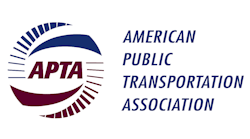INVEST Act moves to full House for consideration following two-day committee markup
The Investing in a New Vision for the Environment and Surface Transportation in America (INVEST in America) Act was approved by the House Transportation and Infrastructure Committee June 18 following a party-line vote and more than 24 hours of debate.
Democrats have hailed the legislation as a significant departure from previous surface transportation bills with a focus on maintenance spending and providing a framework in which to move toward a zero-emissions future. Republicans have lampooned the bill as partisan and say there is no plan for how to pay its $494-billion price tag.
“For far too long, Congress has taken a pass on trying to solve the toughest problems plaguing our surface transportation system, allowing it to limp along and fall farther and farther behind the rest of the world. That all changes with the INVEST in America Act, transformational legislation that moves our country into a new era of smarter, safer, more resilient infrastructure that fits our changing economy and society,” said Chair of the Committee on Transportation and Infrastructure Peter DeFazio (D-OR).
More than 70 amendments were adopted during the bill’s committee mark up, including 34 Republican amendments and 23 Democratic amendments. The proposal now moves to the full House of Representatives for consideration, which is expected to take place in early July.
Mixed reactions from the transportation industry
American Road & Transportation Builders Association (ARTBA) President and CEO Dave Bauer commended the bill.
“The INVEST in America Act is a notable recognition of the need to make major new improvements to our aging highways, bridges, rail and transit systems,” said Bauer.
Jeremy R. Ferguson, president of SMART Transportation Division (SMART-TD) said, “In particular, the Invest in America Act addresses long-time SMART-TD priorities, including train crew staffing, critical Amtrak reforms and numerous key safety improvements, while also demonstrating strong leadership on emerging issues that directly impact the livelihood of our members.”
But not all reactions were fully supportive. The National Railroad Construction & Maintenance Association (NRC) said it was pleased to see efforts being made to move the next iteration of surface transportation forward, but noted concerns with labor provisions of the bill that NRC says would restrict competition and legislate a permanent mandate for certain types of rail-related work to be performed exclusively in-house or that contracting out can only be done under certain collective bargaining agreements.
“These provisions would increase costs and reduce flexibility for states, commuter and passenger rail authorities and would make it harder to initiate or expand rail service, especially in an era of limited resources,” said the association. “The NRC is encouraged by the funding levels put forth in this bill, particularly the $60 billion Rail Title and increased transit formula funds, which would positively benefit rail transit and commuter railroads.”
The NRC also added support to concerns raised by freight railroads that would add “unnecessary requirements” and create an “unfriendly business environment” for that section of the industry.
The American Public Transportation Association (APTA) supports the proposal and called it a “forward-thinking” piece of legislation at the time the INVEST in America Act was unveiled. However, the association notes its concerns with changes incorporated to sections 2203 (Mobility Innovation) and 2603 (Innovation Workforce Standards) during markup of the bill that APTA says would place restrictions on the incorporation of mobility on demand and automated vehicle services that would negatively affect public transit agencies' capabilities to be flexible and deploy new and innovative services.

Mischa Wanek-Libman | Group Editorial Director
Mischa Wanek-Libman is director of communications with Transdev North America. She has more than 20 years of experience working in the transportation industry covering construction projects, engineering challenges, transit and rail operations and best practices.
Wanek-Libman has held top editorial positions at freight rail and public transportation business-to-business publications including as editor-in-chief and editorial director of Mass Transit from 2018-2024. She has been recognized for editorial excellence through her individual work, as well as for collaborative content.
She is an active member of the American Public Transportation Association's Marketing and Communications Committee and served 14 years as a Board Observer on the National Railroad Construction and Maintenance Association (NRC) Board of Directors.
She is a graduate of Drake University in Des Moines, Iowa, where she earned a Bachelor of Arts degree in Journalism and Mass Communication.





